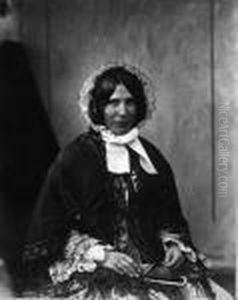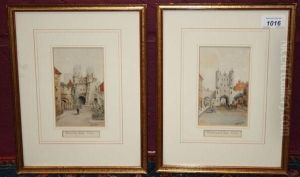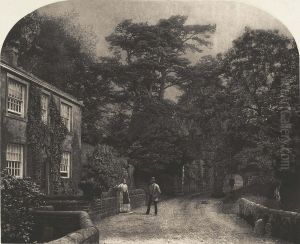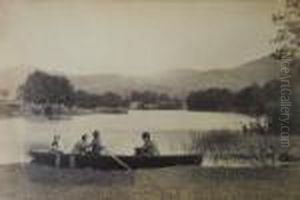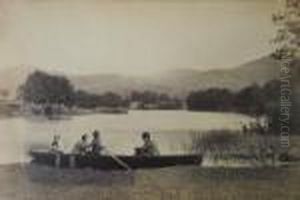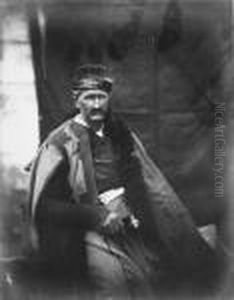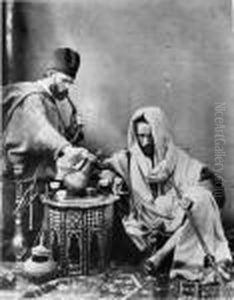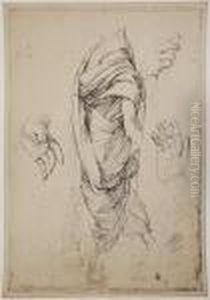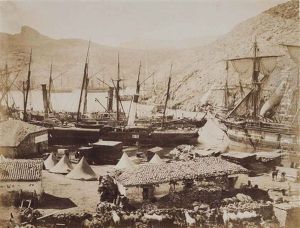Roger Fenton Paintings
Roger Fenton was a pioneering British photographer, best known for his work during the Crimean War and as one of the first war photographers. Born into an affluent banking family in Rochdale, Lancashire, England, on March 28, 1819, Fenton was initially educated in law and painting before discovering the medium of photography, which would define his career. His interest in photography began in the early 1850s, during which time the photographic process was still in its infancy and undergoing rapid development. Fenton quickly excelled in the art, mastering the complex techniques of the day, including the daguerreotype and the calotype processes.
Fenton's photographic endeavors covered a wide range of subjects, from portraits and landscapes to still lifes and architecture. However, his most notable contribution to the field of photography was his documentation of the Crimean War in 1855. Commissioned by the British government, Fenton traveled to Crimea with a horse-drawn mobile darkroom, which he used to process his images on the battlefield. Over the course of several months, he produced approximately 360 photographs that depicted the harsh realities of war, the daily lives of soldiers, and the landscapes of the battlefield. His work from this period is particularly significant because it represents one of the earliest systematic attempts to document a war through photography.
Despite the acclaim Fenton received for his war photographs, he was limited by the technology of his time, which did not allow for the capture of moving subjects or the harsh conditions of the battlefield. Consequently, his images often portrayed the more static and peaceful moments of military life, avoiding the direct representation of conflict and suffering. This approach, combined with the British government's desire to use his photographs for propaganda purposes, has led to debate among historians about the extent to which his work reflects the realities of war.
After returning from Crimea, Fenton continued to work as a photographer, focusing on landscape and architectural subjects. He was also a founding member of several key photographic societies, including the Photographic Society of London (later the Royal Photographic Society) in 1853. Despite his contributions to the field, Fenton's career in photography was relatively brief. By the early 1860s, he had largely retired from photography, reportedly disillusioned by the commercial and competitive aspects of the field. He returned to his original profession of law and devoted himself to the affairs of his family estate.
Roger Fenton died on August 8, 1869, in London, England. His legacy, however, lives on through his pioneering work in photography. His photographs, particularly those of the Crimean War, remain invaluable historical documents that provide insight into the early use of photography as a means of documenting war and society. Fenton's work not only paved the way for future war photographers but also helped to establish photography as a serious medium for artistic and documentary expression.
